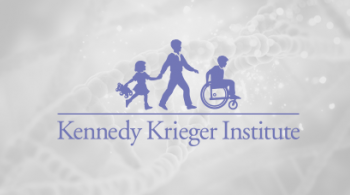By Erin F. Jones, BA, manager of research operations for Kennedy Krieger Institute’s Neuropsychology Department
The Intellectual and Developmental Disabilities Research Center (IDDRC) is providing Pilot Funding Support for pilot scans of the HEALthy Brain and Child Development (HBCD) Study, a Johns Hopkins Bloomberg School of Public Health and Kennedy Krieger Institute collaborative effort funded by the National Institutes of Health (NIH) and the National Institute on Drug Abuse (NIDA). Beginning in the prenatal stage and following the brain development of participating children for 10 years, the overall goal of the HBCD Study is to create a dataset from a diverse sample of 7,500 pregnant individuals and their live born children enrolled at 25 sites throughout the United States.
Objectives of the HBCD Study include:
- Characterizing typical neurodevelopment of children from birth to 10 years of age
- Assessing how biological and environmental exposures and interactions affect neurodevelopmental trajectories
- Assessing the effects of early life exposure to opioids, marijuana, alcohol and other substances on neurodevelopment
- Identifying key developmental windows during which the impact of exposures and protective influences impact later neurodevelopmental outcomes and trajectories
- Assessing the impact of early caregiver-child relationships on later developmental outcomes
The main study enrollment at the Johns Hopkins and Kennedy Krieger site will be open to English and Spanish speakers, with 300 participants recruited in the first three years. Study participants will complete surveys, engage in interactive activities and provide biospecimen. Only birth parents will provide blood, while both birth parents and children will provide urine and saliva. Children will wear activity and heart rate sensors and undergo Magnetic Resonance Imaging (MRI) and electroencephalogram (EEG) testing. The main study will be composed of eight in-person visits with some virtual visits, online survey components and one to two visits in subsequent years.
Now in the pilot phase and with pilot study support from the IDDRC, the HBCD Study team has completed eight Visit 1 (prenatal, birth parent in second and third trimester of pregnancy), three Visit 2 (infants through the first month of age, includes MRI and activity rate sensors), and three Visit 3 (infant ages three to nine months, includes MRI, EEG, activity and heart rate sensors, Emotional Regulation Index for Children and Adolescents [ERICA] assessment). Transition from the pilot phase to the final study phase is expected to occur at the end of the summer in 2023.
For more information on the HBCD Study at Johns Hopkins and Kennedy Krieger, visit the website or view the study brochure here.
To learn more about the wide array of services provided through the IDDRC, or to access the IDDRC Application Portal, please visit IDDRC.KennedyKrieger.org. As always, please kindly remember to acknowledge the IDDRC (P50 HD103538) in publications and presentations resulting from IDDRC support.





